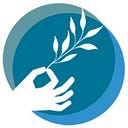Let’s make every $1 spent on emergency water provision count toward sustainable systems
By Henrietta Fore
Every child has the right to survive and thrive. Today, the lack of investment in sustainable water, sanitation and hygiene (WASH) for fragile and conflict settings pose a direct threat to this right. As the COVID-19 pandemic threatens to roll back years of development gains, it is more urgent than ever that the world’s most vulnerable are not left behind. Today more than 2 billion people lack access to safe water and 3 billion people lack handwashing facilities with water and soap at home. Limited access to water, sanitation and hygiene will leave these populations at greater risk of transmission. Coupled with the prevalence of underlying health conditions like malnutrition, malaria and anemia in developing countries, these conditions pose grave immediate risks to the world’s poorest.
UNICEF’s WASH team works in over 100 countries worldwide to improve water and sanitation services, as well as basic hygiene practices. Last year, we provided more than 32 million people with access to safe water for drinking, cooking and personal hygiene in humanitarian situations — but we need to do more.
Despite these results, too often we are delivering water to communities with temporary and costly approaches that persist over years as…
